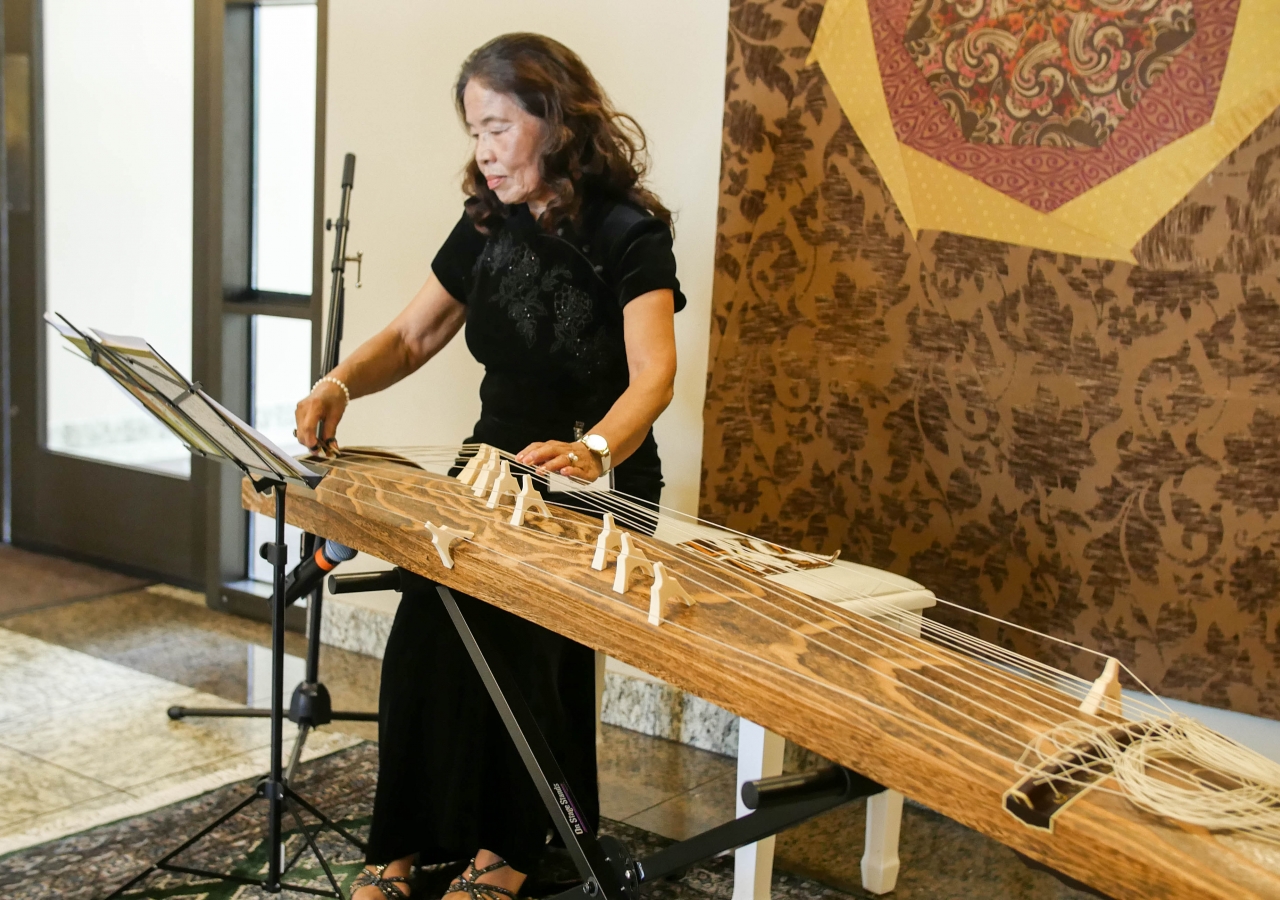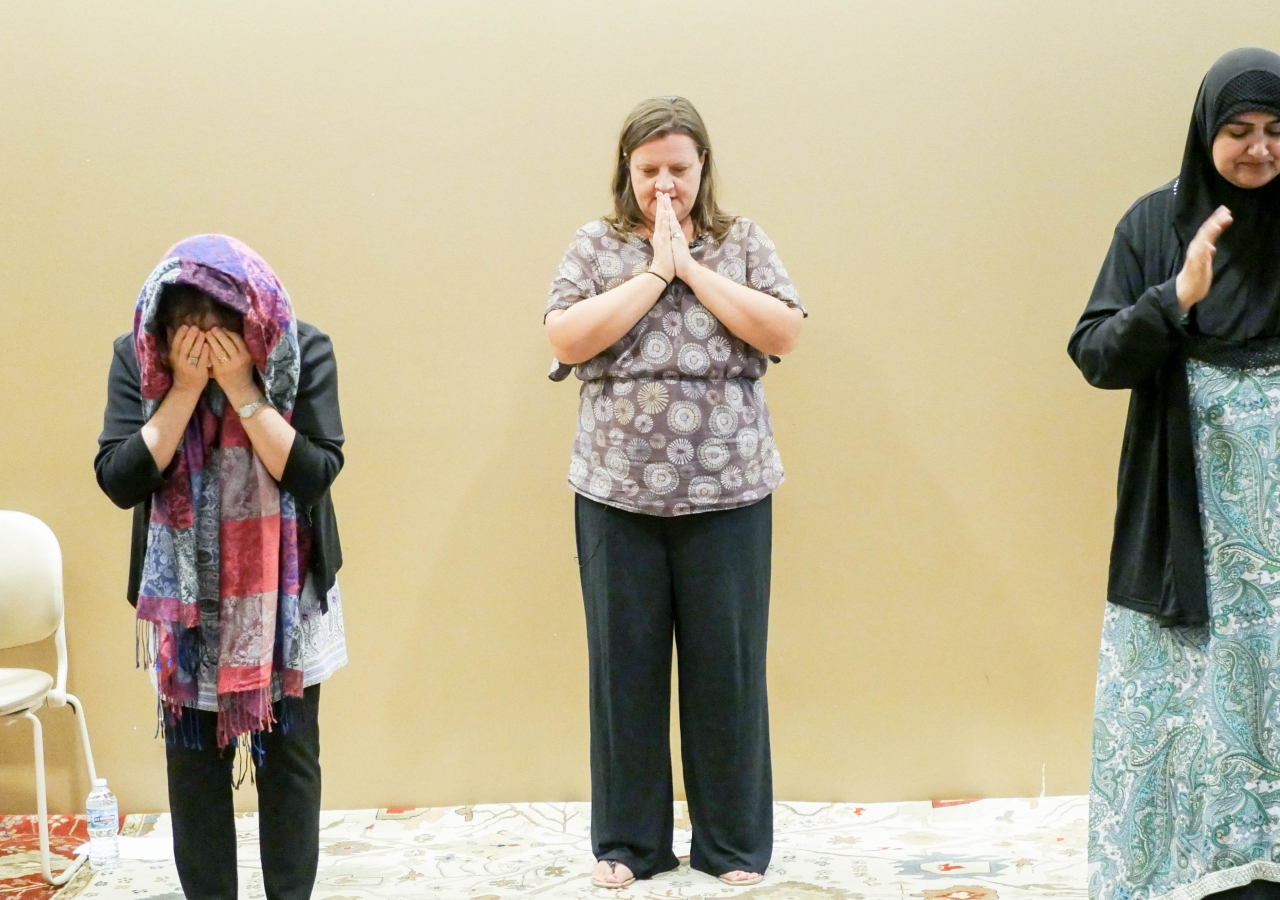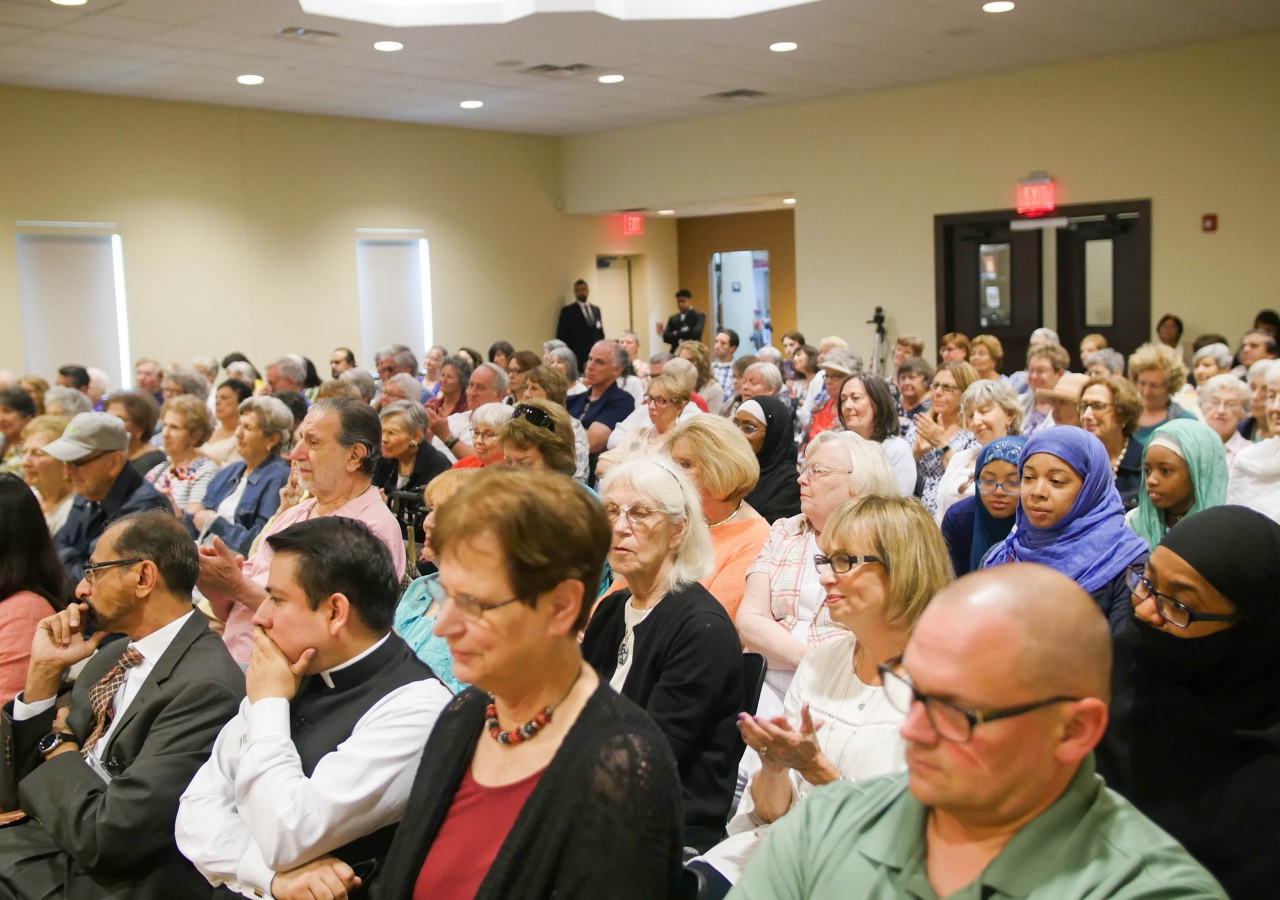Continuing with the essence of utilizing the Ismaili Jamatkhanas as a space for dialogue and engagement, the Glenview Jamatkhana hosted an interfaith performance by the Three Sisters of Story which brought members of the North Shore Community into the Ismaili Jamatkhana. It was a unique opportunity for various local faith based groups to come together as one and co-sponsor the show. The list of sponsors included, Ismaili Jamatkhana Glenview, St. David’s Episcopal Church Glenview, Chestnut Square at the Glen, St. Philip Lutheran Church Glenview, and the National Coalition of Jewish Women – Chicago North Shore section.
At the reception preceding the performance, community members of Glenview and nearby suburbs met and mingled. Seema Mithani, a Japanese Ismaili Muslim played on the koto, a traditional Japanese instrument. She said "a few days back when I was asked to perform in front of people with different religious backgrounds, I was thrilled because I wanted to see how authentic Japanese music would be understood by others. It was amazing to see so many different people of religious backgrounds come together in the Jamatkhana."
In response to current divisive language in our national discourse and the actions of some minority groups,Rohina Malik (Muslim playwright), Kim Schultz (Christian author), and Susan Stone (Jewish storyteller) united to demonstrate their lives were more similar than not. The three artistic women from different Abrahamic faiths showcased stories inspired by their personal faith journeys. They were accompanied by Lucia Thomas, a versatile musician who played the violin, oud, and guitar throughout the performance.
Each woman regaled the 150 audience members with tales highlighting her distinct experience. "I enjoyed the weaving of personal events and personal beliefs together in a way that respected and connected all three religions," said Kathryn Heyser an audience member. Qasim Gillani, a member of the Ismaili Muslim community said "it was wonderful to host such an impactful program in the Jamatkhana. I hope we can have more programs like this to spread peace and learn about each other’s religions."
Rohina Malik told stories connecting Islam to Christianity and Judaism, such as Mary’s labor with Jesus (Prophet Isa) and of Hagar (mother of Prophet Ismail) discovering the Well of Zamzam. She knitted these stories together with her personal experiences to illustrate an adage common in many religions: You must put forth your best effort, then God will take care of the rest. It would have been impossible for Mary to shake the sturdy date-palm tree hard enough for its fruit to fall, but she had to try before God dropped ripe dates from the tall tree to ease her hunger. Hagar searched desperately for water in the vast desert before God revealed a fresh spring to quench her thirst.
Kim Schultz spoke of a common frustration experienced by people of all faiths: God does not interact with us the way we want. She highlighted this message in an amusing tale. One day, she goes to church to asks Jesus to show himself and explain the suffering she sees in the world. She doesn’t receive heavenly guidance but keeps hearing laughter behind her. She decides to greet the laughing man and learns his name is Jesús (a name common among Christians from Spanish speaking countries). Jesus did appear before her, just not the one she was expecting.
Susan Stone shared an inspirational story. A rabbi told a small, crumbling town, "The Messiah is amongst you." The townspeople began to ponder the identity of the Messiah by listing all the good and bad characteristics of the people they knew. As the search continued, the people began to treat each other with more respect and kindness. Slowly, the people began to see a bit of the divine in their neighbors and helped each other rebuild the town as a peaceful haven on Earth.
“As storytellers, we use are our talents to break down stereotypes and build common ground for people of different faiths to know and understand each other,” said Rohina Malik. This was the driving force behind the collaboration and creation of the Three Sisters of Story. “Art is powerful because it brings people together and gives us a safe place for meaningful interaction.”
Religious officials of various faiths helped to facilitate conversation between guests by making introductions and encouraging open and respectful dialogue about similarities across religions and cultures. "The venue, hospitality, and show were wonderful,” praised Voneva Weidemann, a resident of Glenview.










